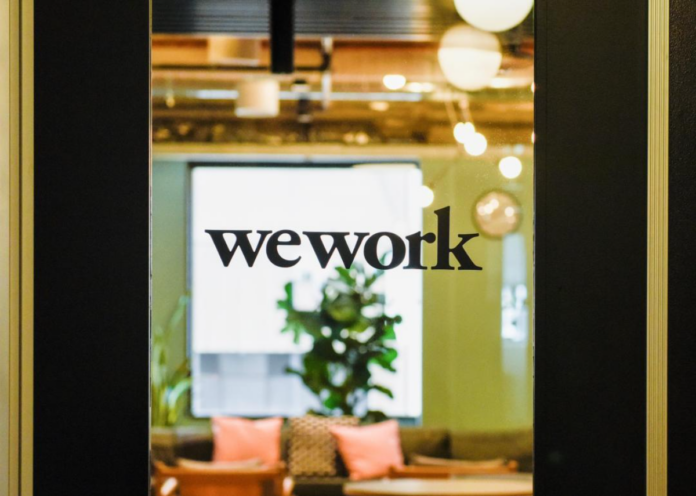WeWork sales attitude has stirred a heated debate online after Delhi-based entrepreneur Alok Jain voiced his displeasure about a sales executive’s behavior during his inquiry for extra office space. Jain likened the interaction to the “Mercedes or Land Rover showroom attitude,” implying a judgmental and elitist demeanor. His critique quickly gained traction, sparking conversations about customer experience in high-profile service industries like coworking spaces.
Why Customer Experience Matters in Sales?
The WeWork sales attitude has raised questions about how businesses prioritize customer interactions. Jain described his experience as overly interrogative, where the sales executive asked, “Are you moving your office?” and “Are you the decision-maker?” According to Jain, these questions made him feel judged rather than supported.
Such an approach can alienate potential clients, particularly in industries where accessibility and flexibility are key selling points. Coworking spaces like WeWork often appeal to startups, small businesses, and freelancers looking for convenient and community-driven office solutions. A rigid or exclusive tone during the sales process could deter these groups from engaging further.
The Debate on Social Media
After Jain shared his experience, social media erupted with divided opinions. While some users echoed his sentiments, citing similar interactions, others defended the sales process as standard practice for qualifying leads.
One user remarked, “I completely understand where he’s coming from; the tone can feel condescending.” Meanwhile, another user suggested, “The salesperson is just doing their job—asking these questions helps them filter serious clients.”
The debate underscores the balance companies must strike between gathering information and maintaining a welcoming demeanor.
A Look at WeWork’s Position
WeWork has positioned itself as a global leader in the coworking space sector, offering stylish and flexible work environments. However, such incidents can harm its reputation, particularly when competitors are vying for the same clientele.
The WeWork sales attitude controversy serves as a reminder of how small moments during the customer journey can impact brand perception. For a company recovering from past controversies and financial instability, prioritizing customer satisfaction should be a top focus.
Lessons From the Luxury Industry
Jain’s comparison of the sales interaction to a “Mercedes or Land Rover showroom attitude” draws parallels between coworking spaces and luxury retail. In both sectors, customers often feel they are being judged based on their perceived ability to afford the service or product.
Luxury brands, however, have evolved to embrace inclusivity while maintaining exclusivity. Coworking spaces like WeWork can take cues from these industries by training their staff to be more empathetic and less transactional in their approach.
The Role of Feedback in Shaping Sales Strategies
Feedback like Jain’s offers invaluable insights for companies looking to refine their sales strategies. By addressing these critiques proactively, businesses can demonstrate their commitment to improving customer experiences.
WeWork, for example, could benefit from creating transparent communication channels where customers feel heard and valued. Implementing such measures would not only address immediate concerns but also foster long-term loyalty.
What Entrepreneurs Expect From Coworking Spaces?
Entrepreneurs like Jain often seek coworking spaces for their flexibility, networking opportunities, and affordability. The WeWork sales attitude controversy highlights the gap between client expectations and service delivery.
For many, the decision to choose a coworking space is influenced by the ease of the onboarding process and the support provided during the initial stages. A sales interaction that feels overly scrutinizing can create unnecessary friction, potentially driving clients toward competitors.
Empathy in Sales: The Need of the Hour
Sales professionals operate under immense pressure to meet targets and close deals. However, empathy and understanding should remain central to their approach. A client-first mindset not only builds trust but also sets the foundation for a strong business relationship.
Companies like WeWork can invest in regular training programs to help their sales teams develop these skills. Emphasizing active listening and problem-solving over rigid lead qualification could lead to more positive customer experiences.
Shifting Industry Trends
The WeWork sales attitude incident comes at a time when customer-centricity is becoming a key differentiator in competitive markets. Businesses that prioritize personalized and empathetic interactions are more likely to succeed in retaining clients.
As the coworking industry continues to grow, players like WeWork must adapt to these shifting expectations. Offering a seamless and inclusive customer journey can help them stay ahead in the race for market share.
Takeaways for Businesses
Jain’s critique offers valuable lessons for businesses across industries. Whether in coworking spaces, retail, or technology, the principles of effective customer engagement remain universal.
By aligning sales strategies with customer needs and expectations, companies can build stronger, more meaningful connections with their clients. This approach not only enhances brand loyalty but also contributes to sustainable growth in the long term.


